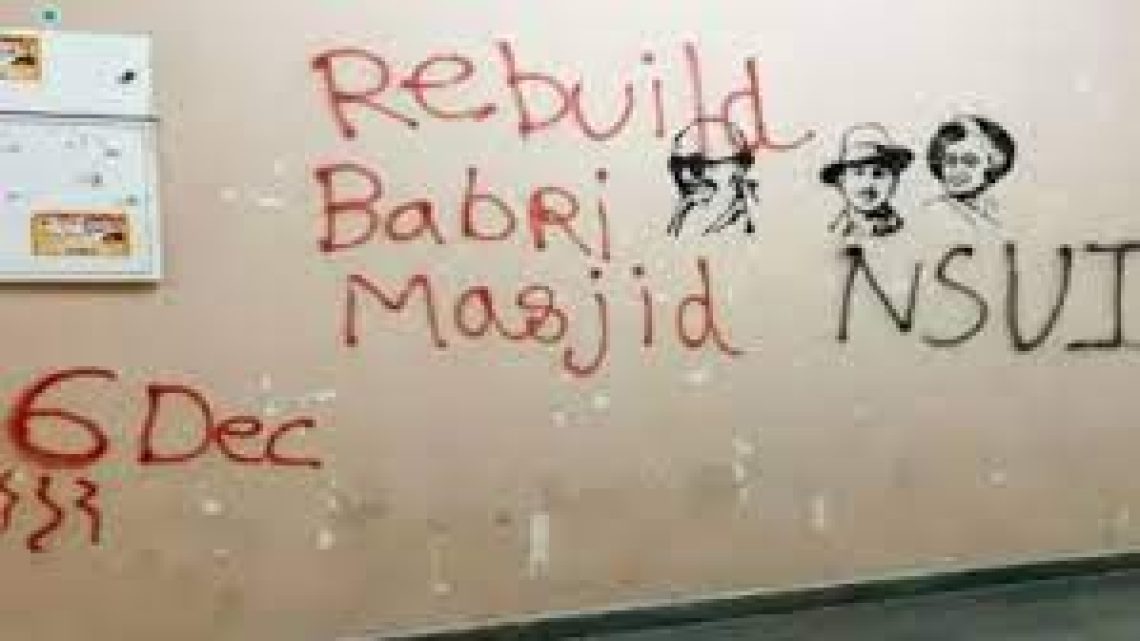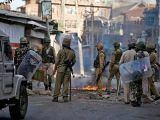
Graffiti Appears on JNU Walls for Reconstruction of Babri Masjid
December 29, 2023The Ram Mandir consecration ceremony slated for January 22 in Ayodhya, India, the walls of Jawaharlal Nehru University (JNU) in New Delhi have become a canvas for students’ messages. According to reports, slogans demanding the reconstruction of Babri Masjid were prominently painted on the first floor of the School of Language, with the message “Rebuild Babri Masjid 6 December” and the identifier “NSUI” (National Students’ Union of India) below.
The images of the graffiti swiftly gained traction on social media, sparking discussions and reactions across various platforms. This incident is not an isolated one for JNU, as similar acts of defacement occurred in October of the same year. During that episode, messages such as “Free Kashmir,” “Teri Kabra Khudegi” (Grave of yours will be dug), and “Bhagwa Jalega” were spray-painted on the walls of a building within the university.
The appearance of provocative slogans on the walls of a prominent educational institution like JNU raises questions about the intersection of political expression, public spaces, and the ongoing cultural and religious developments in the country. The contrasting messages reflect the diverse opinions and sentiments prevalent within Indian society, particularly regarding the contentious history surrounding the Babri Masjid and the subsequent construction of the Ram Mandir.
The deliberate timing of these messages, just ahead of the Ram Mandir consecration ceremony, adds a layer of complexity to the situation. It underscores the sensitivity surrounding religious and cultural issues, as well as the potential for such expressions to amplify existing tensions.
As the nation prepares for a historic event like the Ram Mandir consecration, incidents like these highlight the need for open dialogue and respectful discourse. The university, known for its history of activism and intellectual pursuits, finds itself once again at the center of a larger socio-political conversation. The challenge lies in balancing the right to free expression with the responsibility to maintain an inclusive and tolerant environment, fostering discussions that contribute positively to the diverse fabric of the nation.

